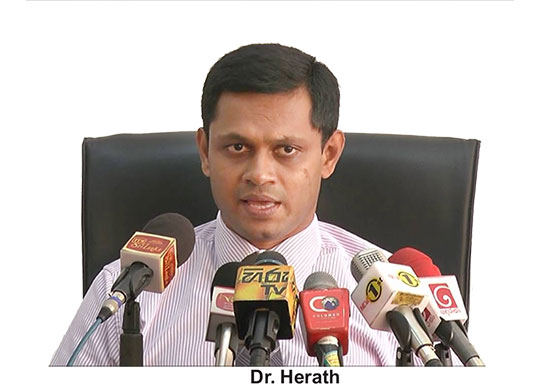News
Inoculation of 12-19 group: ‘Health workers can manage without military involvement’

By Shamindra Ferdinando
The Government Medical Officers’ Association (GMOA) says the civilian health administration is capable of handling the inoculation of those between 12 and 19 years of age.
Its General Secretary Dr. Nalinda Herath on Monday (13) briefed the media on their stand regarding the vaccination of that particular age grouping. Asked by The Island whether the GMOA believed the civilian health administration could handle the vaccination of the student community and those coming within the 12-19 age group, Dr. Herath explained the system in place to meet the challenging task. “Inoculation can be carried out at hospitals countrywide. We have the wherewithal to do so,” Dr. Herath said.
Dr. Herath added that the vaccination of adults and children shouldn’t be compared. The military played a significant role in inoculation of those 30 and above, Dr. Herath said. However, the children should be inoculated under the supervision of medical experts, the top GMOA official said.
According to him, the final decision on the vaccination of those between 12 and 19 as well as re-opening of schools would be taken up at a meeting chaired by President Gotabaya Rajapaksa on Friday (17) at the Presidential Secretariat. Dr. Herath said that two committees that looked into the vaccination of children and re-opening of schools, headed by Director General of Health Services (DGHS) Dr. Asela Gunawardena would submit their reports to the President on Friday.
Dr. Herath said that the GMOA made representations to the relevant committee regarding prioritising vaccination. “We believe those chronic illnesses and students sitting for OL and AL should be vaccinated before the rest covering 12 to 19 years of age,” Dr. Herath said.
Dr. Herath emphasized that it would be the responsibility of the government to address contentious issues. As the country struggled to cope up with the daunting task of overcoming the raging Covid-19 epidemic, the public shouldn’t be affected by uncertainty, Dr. Herath said.
Asked whether Narahenpita Military Hospital, too, could be used for inoculation of students, Dr. Herath said that relevant authorities could inquire into it.
Responding to questions, Dr. Herath said that the sudden creation of a new category to cover those 20-30 and the inoculation of those coming within that group in the Hambantota district caused a dicey situation. Unwarranted interventions undermined the overall vaccination drive and in some instances caused serious issues, Dr. Herath said. The GMOA official said that there had been instances the decision makers overriding the health administration much to the disappointment of those involved in the Covid fight back.
The GMOA official appreciated the progress made so far with more than half of the population given two doses.
Commenting on the proposed inoculation of those less than 15 years of age, Dr. Herath pointed out that the UK was yet to do so. However, the US initiated the inoculation drive, Dr. Herath said, underscoring the importance of the relevant stakeholders reaching a consensus as quickly as possible on such matters of importance.
He said that the GMOA discussed the vaccination of the student community and the re-opening of schools with health minister Keheliya Rambukwella. The GMOA spokesperson said that they reached consensus on allocating 4mn Pfizer doses for the 12-19 group and this could be finalized once the group chaired by the President met on Friday.
Dr. Herath stressed the importance of school supporting staff and other workers being inoculated soon to facilitate the re-opening.
Defence Secretary Gen. Kamal Gunaratne recently told a media briefing at the Defence Ministry why President Gotabaya Rajapaksa brought in the military in wake of despicable attempts to sabotage the inoculation drive.